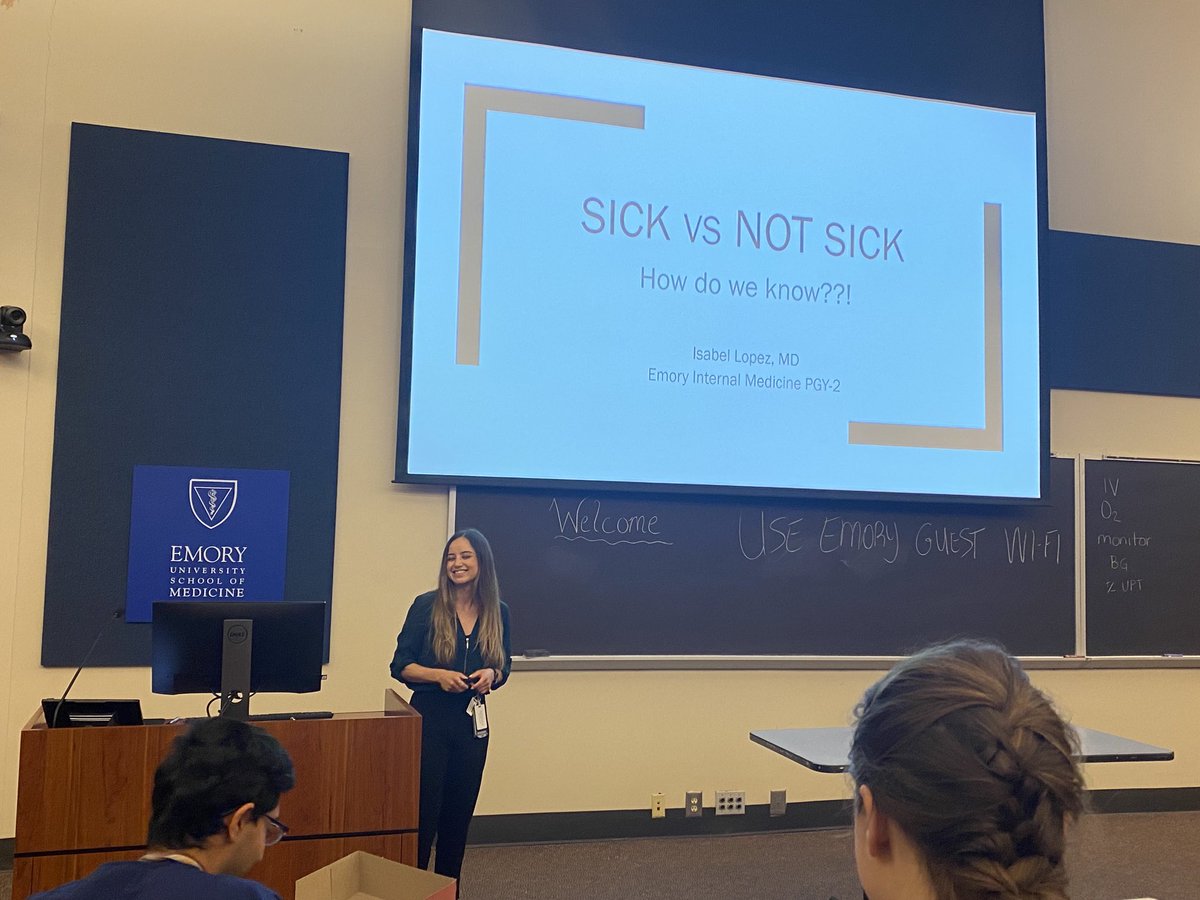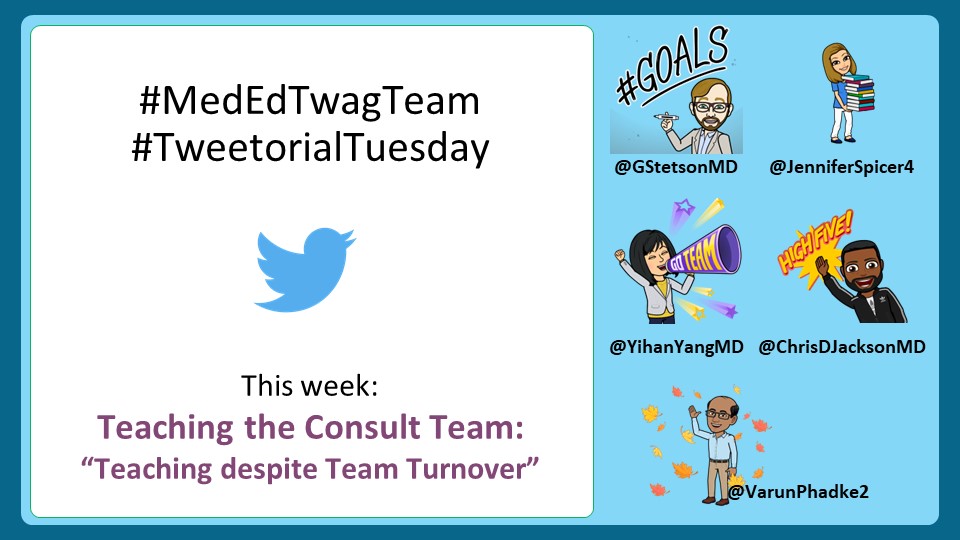1/ A member of your consult team presents a patient w/ suspected neurosyphilis.
Your team:
⭐️ 3rd year medical student
⭐️ IM intern
⭐️ 2nd year IM resident
⭐️ 1st year ID fellow
How can you possibly provide valuable teaching to all of them?
This week: Multi-level teaching
Your team:
⭐️ 3rd year medical student
⭐️ IM intern
⭐️ 2nd year IM resident
⭐️ 1st year ID fellow
How can you possibly provide valuable teaching to all of them?
This week: Multi-level teaching

2/ Teaching multi-level learners is hard.
Their range in baseline knowledge means a single teaching point is often not effective for everyone.
So how can you support everyone's learning without taking too long and/or boring others?
Their range in baseline knowledge means a single teaching point is often not effective for everyone.
So how can you support everyone's learning without taking too long and/or boring others?
3/ A prior thread discussed the importance of clarifying learners' needs & interests at the beginning of the rotation.
This is one 🗝️ for effective multi-level teaching.
Know what materials is RELEVANT and INTERESTING for each learner level.
This is one 🗝️ for effective multi-level teaching.
Know what materials is RELEVANT and INTERESTING for each learner level.
https://twitter.com/JenniferSpicer4/status/1592571800378281985
4/ Many of us feel more comfortable teaching to a particular learner level.
For me, that tends to be residents.
And that's okay.
But we should ensure that we actively consider ways to engage other learners on the team too.
For me, that tends to be residents.
And that's okay.
But we should ensure that we actively consider ways to engage other learners on the team too.
5/ So how do I teach when I have multi-level learners on my teams?
Here's a framework for how I categorize the options:
📌 Different times, different content
📌 Same time, different content
📌 Same time, same content
Let's discuss examples of each.
Here's a framework for how I categorize the options:
📌 Different times, different content
📌 Same time, different content
📌 Same time, same content
Let's discuss examples of each.

6/ When I have learners with vastly different knowledge bases, I try dedicated 1-on-1 teaching.
It engages all learners without boring them.
Pros:
💚Focused, applicable teaching
💚Other learners can complete work
Cons:
⛔️Less time for each learner
⛔️More time-consuming for me
It engages all learners without boring them.
Pros:
💚Focused, applicable teaching
💚Other learners can complete work
Cons:
⛔️Less time for each learner
⛔️More time-consuming for me

7/ But sometimes having separate teaching times during the day can be time-consuming, especially if we don't integrate it into the work we already need to get done.
Teaching different content at the same ⏰ ensures everyone learns, even if some content is too easy/difficult.
Teaching different content at the same ⏰ ensures everyone learns, even if some content is too easy/difficult.
8/ I use this strategy during rounds or chalk talks by targeted my questions or teaching pearls to the appropriate learner level, layering successive comments for each learn.
See some examples below for common topics I teach.
Obviously, overlap exists between learner levels.
See some examples below for common topics I teach.
Obviously, overlap exists between learner levels.

9/ Finally, the simplest way to teach is teaching all learners the same content.
This is less common during traditional teaching (e.g., chalk talks) unless it’s an uncommon or complex topic, such as:
✅ HLH
✅ HHV-8 associated diseases
✅ Transplant infections
This is less common during traditional teaching (e.g., chalk talks) unless it’s an uncommon or complex topic, such as:
✅ HLH
✅ HHV-8 associated diseases
✅ Transplant infections
10/ However, during rounds, it's really easy to engage the entire team by asking questions with no single "right" answer.
I find this to be the easiest (and most fun!) to teach.
I find this to be the easiest (and most fun!) to teach.

11/ But what about when you have an advanced learner, such as a final year fellow, where you feel like you have little else to teach them?
How can you continue to teach them?
Have THEM teach/run the team, and give feedback on their leadership & teaching.
How can you continue to teach them?
Have THEM teach/run the team, and give feedback on their leadership & teaching.
12/ In summary, next time you're trying to think about how to engage multi-level learners, consider which of the following strategies fits best based on:
⭐️ Degree of variability in learners' baseline knowledge
⭐️ Time available to you & your learners
⭐️ Degree of variability in learners' baseline knowledge
⭐️ Time available to you & your learners

13/ Thanks for joining! Next week I will continue the "Teaching the Consult Team" segment with "Teaching despite Team Turnover."
And follow @MedEdTwagTeam, @ChrisDJacksonMD, @GStetsonMD, & @YihanYangMD so you don't miss a thread!
And follow @MedEdTwagTeam, @ChrisDJacksonMD, @GStetsonMD, & @YihanYangMD so you don't miss a thread!

• • •
Missing some Tweet in this thread? You can try to
force a refresh
















